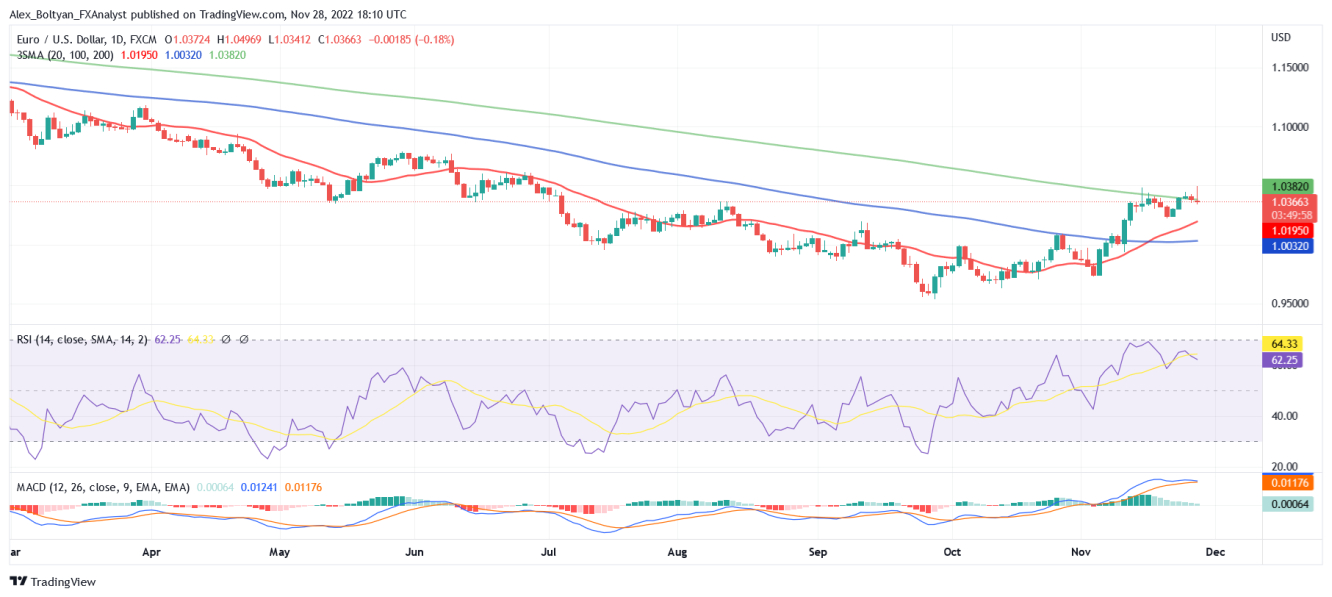The EUR/USD pair pulled back on Monday after being rejected from a five-month high of 1.0496 scored during the European session.
The greenback is staging a comeback across the board as U.S. traders rejoin the market and amid worries China's record-high COVID infections will prompt stricter restrictions, risking supply chain disruptions.
At the time of writing, the EUR/USD pair is trading at the 1.0370 area, just a few pips below its opening price. Comments from European Central Bank members boosted the euro earlier in the session, but the shared currency failed to sustain altitude.
ECB's Klaas Knot stated Europe needs to prepare for a "protracted" period in which policymakers and central bankers will have to be on it and focus on restoring price stability.
Meanwhile, President Christine Lagarde said she doesn't see the components or the direction that would lead to believe that inflation has peaked.
Lagarde reiterated interest rates would remain the main tool to fight inflation and that further hikes would depend on the Government Council's outlook on the persistence of the shocks, the reaction of wages and inflation expectations, and their assessment of the transmission of the policy stance.
Meanwhile, investors continue to speculate on whether the ECB will hike by 50 o 75 bps at the December meeting, so Wednesday's Eurozone inflation readings will play a big role in those bets.

From a technical standpoint, the EUR/USD short-term bias remains bullish despite indicators turning flat on the daily chart, while the price struggles around the 200-day SMA after being rejected from the 1.0500 area.
On the upside, EUR/USD immediate resistance levels could be found at the recent high at 1.0496, followed by the 1.0600 zone. On the other hand, short-term supports are seen at the 1.0300 level and last week's lows at around 1.0220.
